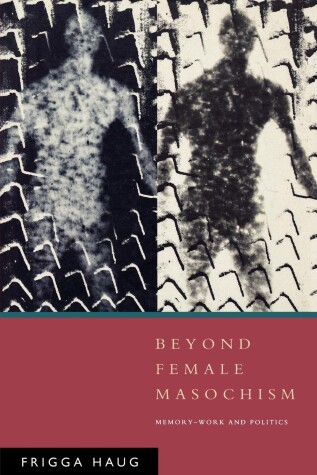Questions for feminism
2 total works
Foregrounding the body, this remarkable collective work explores the sexualization of women's bodies, charting the complex interplay of social, political and cultural forces which produce a normative "femininity." A series of projects which focus on concrete instances of sexualization (hair, legs, the slavegirl stereotype, women's gymnastics) lead to a broader examination of the relationship between power and sexuality, the social and the psychological. Placing themselves at the crossroad where feminism and socialism meet, the contributors move seamlessly between the autobiographical and the analytical, questioning the diversion between personal and political, mapping the knot of memory and desire at the heart of the gendered body. Vitally, these accounts do not present sexualization as a passive inculcation of social norms: the individual is presented as taking an active role in the construction of gendered identities.
Frigga Haug, one of Germany’s best-known feminist and Marxist critics, develops here a profound challenge both to women’s oppression and to what she sees as women’s ‘collusion’ in that oppression. Rejecting the essentialism of much feminist writing today, along with the denial of subjectivity that still permeates Marxism, Haug explores the connections between Marxist theory and the emancipation of women, a project which necessarily involves, as she explains, “diverting a powerful and long-standing anger into detective work.”
Under the headings of Socialization, Work and Politics, she combines the fruits of these investigations with the influential “memory-work” she has pioneered with women’s collectives, to throw startling new light on a wide range of themes and issues: personal ethics and public morality; daydreams, domesticity and consumerism; privatization, new technologies and the restructuring of the workplace; the evolution of women’s politics in Germany; the future of socialist feminism in the wake of Communism’s collapse.
Above all, this is a book which strives to find new links between the micro-politics of daily life and the evolving structures of capitalism. “If we could find out why and when our hopes for life were buried,” Haug argues, “then we could try to take our history in our own hands.” Beyond Female Masochism provides the materials, and inspiration, to do just that.
Under the headings of Socialization, Work and Politics, she combines the fruits of these investigations with the influential “memory-work” she has pioneered with women’s collectives, to throw startling new light on a wide range of themes and issues: personal ethics and public morality; daydreams, domesticity and consumerism; privatization, new technologies and the restructuring of the workplace; the evolution of women’s politics in Germany; the future of socialist feminism in the wake of Communism’s collapse.
Above all, this is a book which strives to find new links between the micro-politics of daily life and the evolving structures of capitalism. “If we could find out why and when our hopes for life were buried,” Haug argues, “then we could try to take our history in our own hands.” Beyond Female Masochism provides the materials, and inspiration, to do just that.

